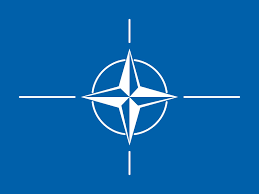The Youth Employment Agency (YEA) in Ghana has embarked on a significant initiative to combat the escalating problem of market fires across the country by training and deploying 5,000 fire service assistants. This program represents a dual-pronged approach by the government to address both the pressing issue of unemployment among the youth and the recurring challenge of fire outbreaks that have caused significant economic losses and disruptions. The initiative leverages the YEA’s mandate to create employment opportunities while simultaneously contributing to national development by strengthening the country’s fire response capabilities. This proactive strategy aims to not only mitigate the devastating effects of market fires but also to provide much-needed jobs for young people.
Malik Basintale, the Acting Chief Executive Officer of the YEA, highlighted the strategic importance of this program during a graduation ceremony held in Accra for a cohort of 894 newly trained fire service assistants, representing a portion of the targeted 5,000 recruits nationwide. He emphasized the YEA’s problem-solving approach, which involves identifying critical national challenges and developing employment opportunities around the solutions. In this case, the rampant occurrence of market fires necessitated a bolstering of the fire service, thus creating the opportunity to train and employ thousands of young people as fire service assistants. This model not only addresses unemployment but also equips the nation with a larger, more robust force to combat fire outbreaks.
The timing of this initiative coincides with a series of recent market fire incidents, including a notable one at the Suame Post Office market in Kumasi, which underscored the urgent need for a more comprehensive and responsive fire service. These incidents serve as stark reminders of the vulnerability of markets and the potential for widespread damage and economic hardship resulting from fires. The deployment of these newly trained assistants will effectively augment the existing fire service personnel, enabling a quicker and more effective response to fire outbreaks, potentially minimizing the damage and enhancing the safety of market traders and surrounding communities.
Further emphasizing the government’s commitment to this program, President John Dramani Mahama directed a substantial 60 percent increase in the allowances for the fire service assistants. This significant increase underscores the value placed on the services of these recruits and serves as a further incentive for young people to join the program. It also recognizes the importance of providing decent remuneration to those tasked with safeguarding lives and property. This boost in allowances not only improves the financial well-being of the recruits but also underscores the seriousness with which the government views the fight against fire outbreaks.
The successful training and deployment of these fire service assistants represents a significant milestone in the ongoing effort to improve fire safety and reduce the incidence of devastating market fires. The YEA’s innovative approach of linking job creation with addressing critical national challenges demonstrates a proactive and strategic response to both unemployment and fire safety concerns. This model has the potential to be replicated in other sectors, contributing to both economic growth and national development.
The newly trained fire service assistants represent a much-needed reinforcement for the Ghana National Fire Service, providing essential support in preventing and mitigating fire outbreaks. Their presence will enhance the capacity of the fire service to respond effectively to emergencies, ultimately contributing to a safer and more secure environment for markets and surrounding communities. The program signifies not just a boost in employment figures but a tangible investment in national safety and resilience against fire disasters. This multifaceted approach holds promise for long-term positive impacts on both individual livelihoods and national wellbeing.














